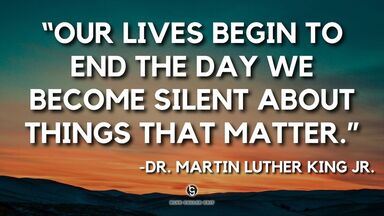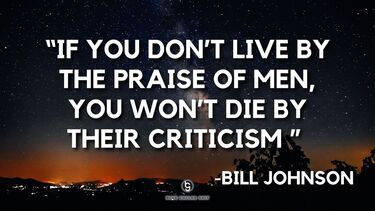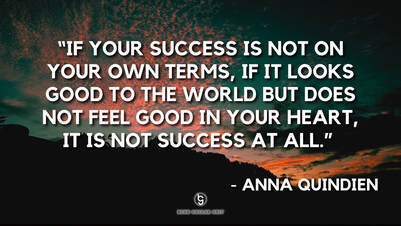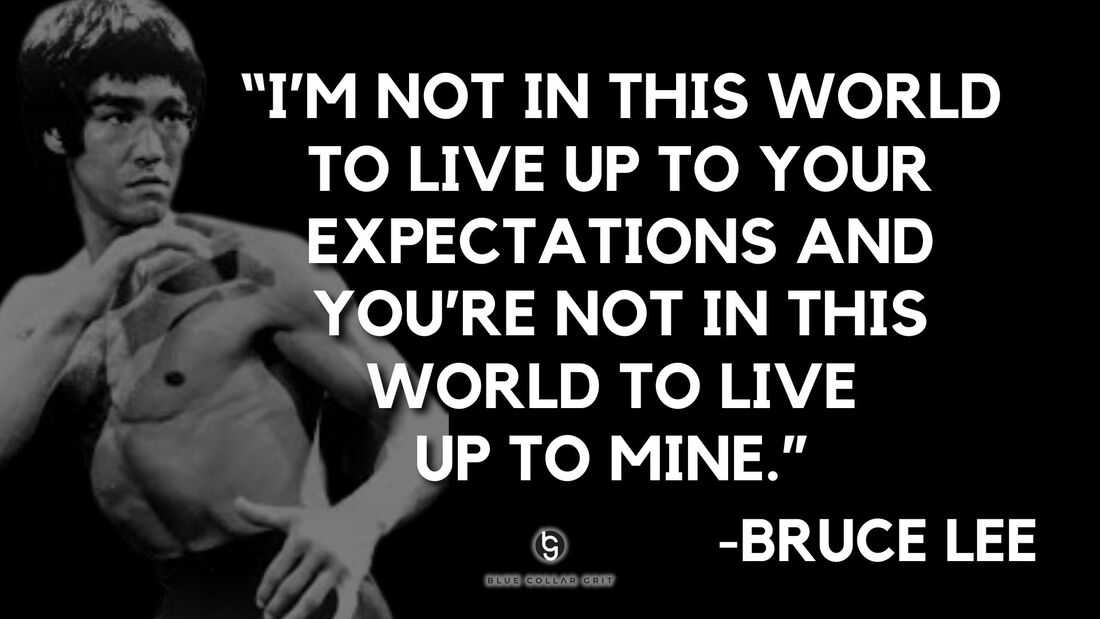The Selfishness of SilenceCrucial conversations are defined as discussions that involve three key components: high stakes, differing views, and strong emotions. As you think about that, consider the conversations that do not fall into this category: the weather, casual chatting, direct instructions, maybe petty complaints …
One thing is for sure, no meaningful leadership conversations are ever absent of high stakes, differing views, or strong emotions. Virtually every conversation we embark on as a leader is meaningful. The problem in leadership, of course, is not the conversations themselves - though they can be very challenging. The bigger problem is the avoidance of them all together. When confronted with crucial conversations, we only have three choices: have them and handle them poorly, have them and handle them well, or don’t have them. The final choice is the option most choose, or defer, to. Crucial conversations are certainly a time when doing nothing is a choice in, and of, itself. In a team setting, rather than choosing to have crucial conversations, we are drawn to avoid them. Having them, even if executed poorly, at least demonstrates the courage to prioritize the team over ourselves. But, avoiding them, now that’s a different story. Why Should We Care? “If this team fails to reach its goal this season, what will the reason be?” We ask this question to our team at the start of every season as a means to surface the biggest threat to every team: selfishness. The answers all point in the same direction and summarize the same basic message: prioritizing ourselves over the team. This is the crux of every team, isn’t it? Choosing the team over the individual is the goal of coaches from peewee to the professional ranks. Leaders that are able to tap into the collective power of the team multiply their performance potential exponentially. Our conversation following the initial question attempts to drill down on the idea of selfishness. Primarily, what it looks and sounds like within a team setting. We try to name it, to tame it you could say. One thing becomes increasingly clear as the discussion unfolds: silence is selfish. It could surface as an unwillingness to hold a teammate accountable or withholding praise for a teammate due to our own insecurity, but the message remains clear: my comfort is more important than you or the performance of the team. Our willingness to avoid conversations that we know are beneficial to the individual and the team is nothing more than a reflection of our own selfishness. REAL TALK - Action Steps If communication weren’t such a challenge for teams, leaders wouldn’t constantly be talking about it as a needed area of improvement. The fact is, when it comes to a team setting, there is no such thing as over-communicating. We can’t make the message too clear. Here are a few ideas to fight the silence most are bent towards, especially in the mists of performance.
Most conversations are crucial. And, most either end in silence or violence. While blowing up and losing our temper can be detrimental to our leadership, we’ve found that the selfishness behind silence can be an even greater threat to our impact as leaders. For more information on building excellence in your teams, visit us at www.bluecollargrit.com. We would love to know how we could help!
1 Comment
Praise & CriticismMy major in college was secondary math education. Yes, I’m aware of how exciting that sounds - especially the math part. I knew I wanted to teach and coach, and liked math … enough. To be honest, I chose math primarily because I knew I could find a teaching job since math has long been an area of need in our school systems.
The education classes I took as part of my undergrad studies were fairly useless, as I suspect most are. Taking a class on how to manage thirty teenagers is absolutely nothing like standing in front of them attempting to teach them about something they have no desire to learn. However, I do recall a few things. One being the approach to delivering feedback to students: The Sandwich Method. It works like this: provide the student with a compliment to get their attention, then the critical feedback, followed by another praise - positive, negative, positive. It sounds great in theory, as most undergrad instruction does, but falls ridiculously short in practice. Why Should We Care? The underlying purpose of the sandwich method is to protect us from critical feedback. By doubling up on the praise, we hope to soften the blow of the criticism. Protecting, rather than growing, becomes the priority. While the sandwich method fails to create change for many reasons, it is better than what most leaders choose to do: provide no critical feedback. We get too caught up in the perceived positives and negatives of the process, as if it were a math equation. The truth is it’s our relationships, not our delivery of feedback that provide the power behind our praise or criticism. The relationships we value the most have the greatest capacity to move us. We need to spend less time concerning ourselves with how praise and criticism is delivered and more time on growing our relationships. When relationships become the focus we stop concerning ourselves with the balance of the praise and criticism teeter-totter. We tell those we love what they need to hear. Sometimes that’s what they want to hear and sometimes it’s not. But either way, it doesn’t stop us from telling them. Criticism is the cost of praise. To attempt to lead with one, and not the other, bounds our impact. REAL TALK - Action Steps The draw to help others feel good about themselves and their place on the team isn’t a bad thing. The challenge is in remembering that it’s not the praise that makes our team members feel good about themselves. It’s the relationships and contribution to something bigger than themselves. Here’s a few ideas on how to keep that in the forefront:
Praise and criticism are married. Avoid trying to separate them. Both are needed, but not necessarily in equal allotments. Focus on relationships and both will be viewed as the love they are intended. For more information on building excellence in your teams, visit us at www.bluecollargrit.com. We would love to know how we could help! The Score That MatterAs a high school basketball coach for the last twenty-five years, I’ve had the opportunity to watch a lot of pickup basketball games. Sometimes the basketball being played in those games is incredible - intense, skilled, and unselfish. And, of course, other times it’s not. Pick-up basketball can quickly turn into an ego-driven one on one display of talent.
Regardless of the basketball being played, the question being asked the most on every court around the world is: “What’s the score?” In pick-up games the only way to keep playing is to win. With that in mind, it seems like an important question to know the answer to, right? No one is keeping track of minutes played, shot attempts, rebounds, or assists. No, they're keeping track of the only thing that matters: the score of the game. Imagine walking into a friend's house midway through your favorite team’s game and asking what the score is. Rather than sharing with you the score to the game, one friend tells you the number of pitches thrown by each team and another friend recites the best player from each team's batting average for the day. It would make no sense, right? The score that matters is the score to the game, not some trivial statistic that may, or may not, give you insight into how the game is going. Such is life. Why Should We Care? We love to keep and measure our worth with trivial statistics. I mean, looking at our life as a whole, what can we consider the number of Instagram followers other than trivial? Yet, in our society, it elevates our status and draws admiration. Even something as seemingly important as our job title or salary becomes virtually insignificant when we begin looking at the totality of our lives. Here’s the thing about life though, unlike sports we don’t have to play by the same rules as everyone else. Your scoreboard and my scoreboard do not have to be the same. I get to choose the score that matters to me. That’s right, we choose. I know it may not seem that way based on what is presented to us by society, but it’s true. Have you ever experienced an Amazon delivery driver that is beaming of positivity and brightening your day with a single interaction? She wasn’t disgruntled because her salary isn’t that of her boss. She was simply choosing her own scoreboard. Ever had dinner at a restaurant with an amazing server that makes your experience ten times better than you expected? He wasn’t deflated by what others might deem as a low level food service position. He was choosing to define his lot by his own scoreboard. Society is quick to point to luck or good fortune, when it’s actually a choice. An intentional choice rather than random happenstance. If we do not choose to be intentional, we will end up indifferent. And, those who become captives to indifference quickly become convinced that society’s score is the only option available. It’s simply not true. We can choose to define success based on how well we live our values or on our salary. We can choose to define success based on our relationships with those we love or on the size of our house. We can choose to define success based on our commitment to our faith or on acquiring more likes on social media. The choice is ours. REAL TALK - Action Steps Rather than talk about how to arrive at the score that matters for you, I’ll share a few benefits of approaching life in this way. It’s not free of struggle, grief, or problems but does offer fulfillment and impact society’s scoreboard ultimately fails to offer. Here’s a few of the highlights:
The score does matter. It always has and always will. However, the scoreboard you choose to define success by matters the most. Take the time to look inward, rather than outward, to decide the score that matters for you. Foxhole friend and Learning Leader podcast host, Ryan Hawk, and I are excited for the launch of our new book, The Score That Matters. The official release is set for March, but pre-orders are available now at https://amzn.to/3NkTItq. We hope you will check it out! For more information on building excellence in your teams, visit us at www.bluecollargrit.com. We would love to know how we could help! Success PosersMy wife and I have a daughter that moved out of our house a few years ago to take a job about an hour from us. She works with her favorite thing on earth, cows, every day. She gives tours to classrooms of students and visitors daily, providing her with the opportunity to share her love for the dairy industry with others. She also runs the farm's social media accounts, allowing her to share her passion beyond the walls of their barns. She absolutely loves what she does every day.
Our son is a freshman in college, living his dream of playing college basketball. He gets up every morning, goes to the gym, goes to class, and goes back to the gym. He has coaches, managers, and teammates that share his love for the game. He studies film, invests consistently in his development, and pours into the team and teammates every day in practice. He loves every sweet drenched second of it. My wife and I are extremely grateful for the opportunities both of our kids have been blessed with. We certainly recognize how fortunate they are. As well as things are going for them, it doesn’t equal success. Why Should We Care? Society is full of people jumping at the chance to show you their success. It's easy to do - just present a life others want. It doesn’t matter if you’ve positively impacted others, grown as a result of the process, have a feeling of fulfillment … No, that doesn’t matter. What matters is that we present a life others think is successful. We all know what it looks like: clothes, cars, and houses that we can’t afford; vacations, trips, and parties that we can’t support; relationships, careers, and titles that stir no emotion in us. In the pursuit of this artificial success we don’t become successful, we become posers of success. We present the life we think others want without ever considering what we want. When we really think about it, they rarely align. Not too long ago I overheard an older gentleman put success in perspective for me yet again. He was sharing a conversation with a friend at a nearby table. As their conversation turned to the topic of success, I quietly leaned in. His friend talked about many of his accomplishments, earnings, and possessions. The older man didn’t acknowledge any of them. When his friend had finished, he simply said, “Success isn’t any of that stuff. Success is your kids wanting to spend time with you when they don’t have to.” I was reminded of this while sitting in the lobby of a hotel on the campus of our son’s college laughing and playing Uno with my wife, daughter, and son. We were together. And, if that’s not what success feels like, I’m not sure I want it. REAL TALK - Action Steps The real question for us as leaders is: what does success actually look like? We’re great at answering that question from another person’s perspective, but not so good at honestly answering it for ourselves. Here are a few questions that will help you drill down to what truly matters to you.
Success is a process, therefore it is not a destination. It can't be attained, so trying to “get” it is a senseless act. We can, however, experience success. And, it’s those experiences that make our lives complete. For more information on building excellence in your teams, visit us at www.bluecollargrit.com. We would love to know how we could help! |
About bcI'm a teacher, coach, and parent seeking excellence while defining success on my own terms. Archives
July 2024
Categories |





 RSS Feed
RSS Feed